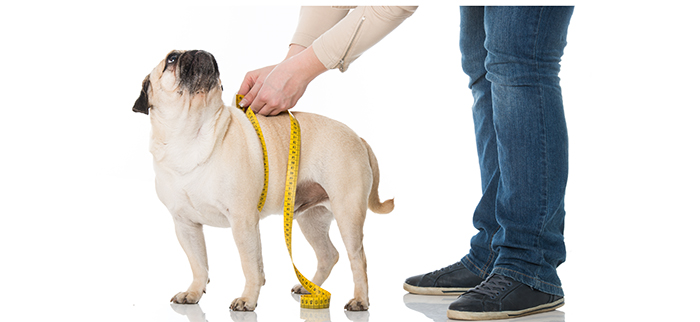New research from the University of Liverpool and Mars Petcare’s Waltham Centre for Pet Nutrition reveals overweight dogs are more likely to have shorter lives than those at ideal body weights.
Results from the study, conducted retrospectively across two decades and published in theJournal of Veterinary Internal Medicine, revealed the lifespan of dogs that were overweight was up to two and a half years shorter when compared to ideal-weight dogs.
The study examined more than 50,000 dogs across 12 of the most popular dog breeds. The effect of being overweight was seen in all breeds, although the magnitude of the effect differed, ranging from between five months less for male German Shepherds to two years and six months less for male Yorkshire Terriers.
Poorer quality of life
It is estimated that over a quarter of households (26%) in the UK and nearly half in the US (47.6%) own a dog. However, despite our affection for canine companions, concern is growing that many pet owners are unaware of the serious health implications of dogs carrying extra weight. Pet obesity is steadily on the rise, with latest figures estimating one in three dogs and cats in the US is overweight.
Although the study did not examine the reasons behind the extra pounds in dogs, feeding habits are thought to play a role in pet obesity. According to a recent Better Cities For Pets survey, more than half (54%) of cat and dog owners always or often give their pet food if they beg for it, and nearly a quarter (22%) of cat and dog owners sometimes overfeed their pet to keep them happy.
Alex German, study co-author and professor of small animal medicine at the University of Liverpool, said: “Owners are often unaware that their dog is overweight, and many may not realise the impact that it can have on health. What they may not know is that, if their beloved pet is too heavy, they are more likely to suffer from other problems such as joint disease, breathing issues, and certain types of cancer, as well as having a poorer quality of life. These health and wellbeing issues can significantly impact how long they live.
“For many owners, giving food, particularly tasty table scraps and titbits, is the way we show affection for our pets. Being careful about what you feed your dog could go a long way to keeping them in good shape and enabling them to be around for many years to come.
“Worryingly, it is estimated only one-in-five pet owners always measure how much food they are giving their pet, with four-in-five (87%) always or often simply estimating the amount of food they think their pet needs at each serving.”


